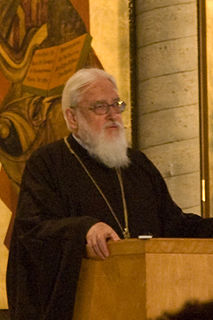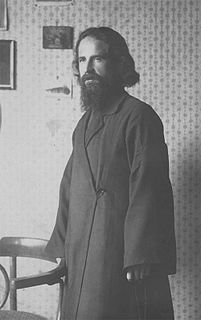A Quote by Charlie Campbell
Lots of people today would never consider themselves guilty of idolatry as far as it is spelled out in the Ten Commandments, but by reducing God to some benevolent "man upstairs" whose only attributes are love and tolerance, and who could not care less about sin, they truly have transgressed God's commandment. They have created a god in their mind who does not actually exist and will on the day of judgment, not be able to offer them any help.
Quote Topics
Able
About
Actually
Any
As Far As
Attributes
Benevolent
Care
Commandment
Commandments
Consider
Could
Created
Day
Does
Exist
Far
God
Guilty
Help
Idolatry
Judgment
Less
Lots
Love
Man
Mind
Never
Offer
Only
Out
People
Reducing
Sin
Some
Ten
Ten Commandments
Them
Themselves
Today
Tolerance
Truly
Upstairs
Whose
Will
Would
Related Quotes
What is sin? It is the glory of God not honored. The holiness of God not reverenced. The greatness of God not admired. The power of God not praised. The truth of God not sought. The wisdom of God not esteemed. The beauty of God not treasured. The goodness of God not savored. The faithfulness of God not trusted. The commandments of God not obeyed. The justice of God not respected. The wrath of God not feared. The grace of God not cherished. The presence of God not prized. The person of God not loved. That is sin.
The problem of reconciling human suffering with the existence of a God who loves, is only insoluble so long as we attach a trivial meaning to the word "love", and look on things as if man were the centre of them. Man is not the centre. God does not exist for the sake of man. Man does not exist for his own sake. "Thou hast created all things, and for thy pleasure they are and were created." We were made not primarily that we may love God (though we were made for that too) but that God may love us, that we may become objects in which the divine love may rest "well pleased".
Fr. Amphilochios, the geronta or elder on the island of Patmos when I first stayed there, would have been in full agreement. Do you know, he said, that God gave us one more commandment, which is not recorded in Scripture? It is the commandment love the trees. Whoever does not love trees, so he believed, does not love God. When you plant a tree, he insisted, you plant hope, you plant peace, you plant love, and you will receive God's blessing.
Man has made 32 million laws since THE COMMANDMENTS were handed down to Moses on Mount Sinai more than three thousand years ago, but he has never improved on God's law. THE TEN COMMANDMENTS are the principles by which man may live with God and man may live with man. They are the expressions of the mind of God for His creatures. They are the charter and guide of human liberty, for there can be no liberty without the law.
Man depends on God for all things: God depends on man for one. Without man's love God does not exist as God, only as creator, and love is the one thing no one, not even God himself, can command. It is a free gift or it is nothing. And it is most itself, most free, when it is offered in spite of suffering, of injustice, and of death . . . The justification of the injustice of the universe is not our blind acceptance of God's inexplicable will, nor our trust in God's love, his dark and incomprehensible love, for us, but our human love, notwithstanding anything, for him.
God abides in each commandment by His gracious power. "God is hidden in His commandments", says St. Mark the Ascetic. God helps everyone who strives to keep His commandments. That God abides in us we know by the Spirit, which He has given us. This means that a Christian is never alone, but that he lives and works together with the Thrice-Holy God.
Our passions are the chief means of self-preservation; to try to destroy them is therefore as absurd as it is useless; this would be to overcome nature, to reshape God's handiwork. If God bade man annihilate the passions he has given him, God would bid him be and not be; He would contradict himself. He has never given such a foolish commandment, there is nothing like it written on the heart of man, and what God will have a man do, He does not leave to the words of another man. He speaks Himself; His words are written in the secret heart.
I'm certainly an imperfect man. And it's only by the blood of Jesus Christ that I've been redeemed from my sins. So I know that God doesn't call me to do a specific thing, God hasn't given me a list, a Ten Commandments of things to act on the first day. What God calls us to do is follow his will. And ultimately that's what I'm going to try to do.
Given the sin of impiety through which they [the Romans] sinned against the divine nature [by idolatry], the punishment that led them to sin against their own nature followed.... I say, therefore, that since they changed into lies [by idolatry] the truth about God, He brought them to ignominious passions, that is, to sins against nature; not that God led them to evil, but only that he abandoned them to evil.
Does God have a reason for wanting us to be charitable, to take care of those who can't take care of themselves? Either God does or God doesn't, it's just logic. If God has a reason then there is a reason independent of God and whatever God's reason is we should figure it out for ourselves. There is a reason and God doesn't really ground morality at all. God wants us to give charity because it's the right thing to do.

































